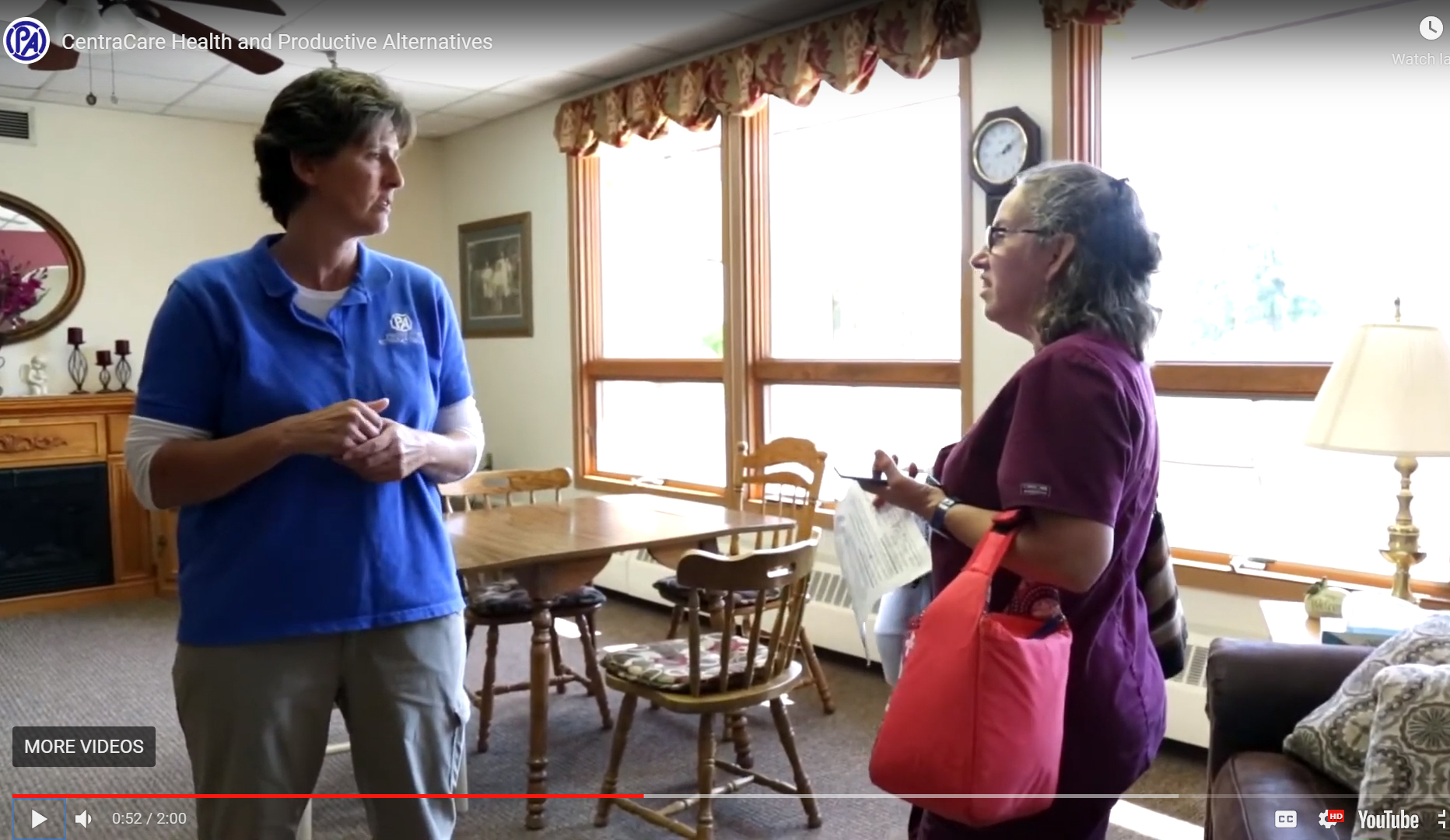Market forces impacting job development help

Hundreds if not thousands of help wanted signs around Minnesota and bubbling up online could be a job options boon for people with disabilities, but there’s one underlying problem, staff support to get and keep them there.
In the Twin Cities exurbs of Princeton and Milaca, disability job coaches are at their limit with community employment sites, and there’s an ongoing waiting list of people looking for work, explains Rod Peltoma, executive director of Mille Lacs County Area DAC.
“We have needed to turn down work because we do not have enough resources to meet the need. Finding staff is our biggest challenge.”
Same story in St. Cloud
A long stone’s throw to the west, in St. Cloud, WACOSA’s hiring process for the people it serves has slowed. “There are more opportunities,” said Executive Director Steve Howard, not not necessarily more jobs (placed) because of the support needed to get, train and maintain the employment.”
Mike Burke, past-president of the Minnesota Organization for Habilitation and Rehabilitation (MOHR), said the nonprofit he’s with is in “scramble mode.” He said opportunities are everywhere but clients at Productive Alternatives, where he is director of operations, cannot take advantage because the nonprofit doesn’t have enough staff to serve the clients who want to return to service after last year’s suspension brought on by the coronavirus.
Situation 'unsustainable'
Productive Alternatives director of Rehabilitation Services, Julie Peterschick, said they are putting unsustainable efforts into hiring and training staff, and it doesn’t appear to be easing at all. “Turnover and being short staffed is expensive and crippling and has become the norm across the industry.”
The medium sized Fergus Falls-based provider with seven locations is paying wages that are significantly higher than current reimbursement rates can support, which Burke and Peterschick say is very concerning for the future.
Rising wage tide impacts providers
Market pressures have some employers who had passed on hiring people with disabilities before now asking if they can try it, Burke said. “We’ve had entry level jobs at $13 per hour with a dream of getting everybody to $15 with benefits. That isn’t cutting it anymore. Now it’s $20 an hour,” he said. Productive Alternatives job coaches are paid $15 to $18 per hour across most of the agency for employment services.
Many service providers have already increased wages this year and labor market rates tend to vary by region.
Closer to the Twin Cities, in the Big Lake area, Options, Inc. has two employment staffers with 58 job placements, and no ability to add more. There are several work crew sites on hold and a client waiting list of 60 due to reduced staff numbers, said Executive Director Brenda Heldert. Options pays $16 per hour starting and average DSP wages are $17.90, and increases have not had a large impact on attracting staff.

Some relief coming, but old data can't catch up to reality
An increase is coming in gradually in 2022 as client service agreements renew and the state’s inflationary adjustment takes effect. Burke said the increase will help and is definitely good, but won’t cover the increased labor costs. The reason? Such increases are based on times gone by, before the hiring crisis grew to current levels.
“The formulas were never set up to reflect what’s happening today,” said Burke. To say that these are challenging times is an understatement, Peterschick said. System changes, many of them, along with the pandemic have required providers to adapt quickly, and the costs are not only monetary, but intellectual and physical, she explains.
Peterschick said quality staff are at the heart of quality services, and she believes that attracting and retaining them will continue to be the biggest challenges for providers across Minnesota.
A support staff person serving someone at McDonald's can be earning $3 per hour less than the person supported, which places a lot of pressure on service providers. “People are ‘iffy,’ able to job hop much easier now because there’s 10 more jobs waiting for them,” said Burke.
Many MOHR members are looking for qualified people to fill DSP roles and would urge people to consider family and friends who they might refer.